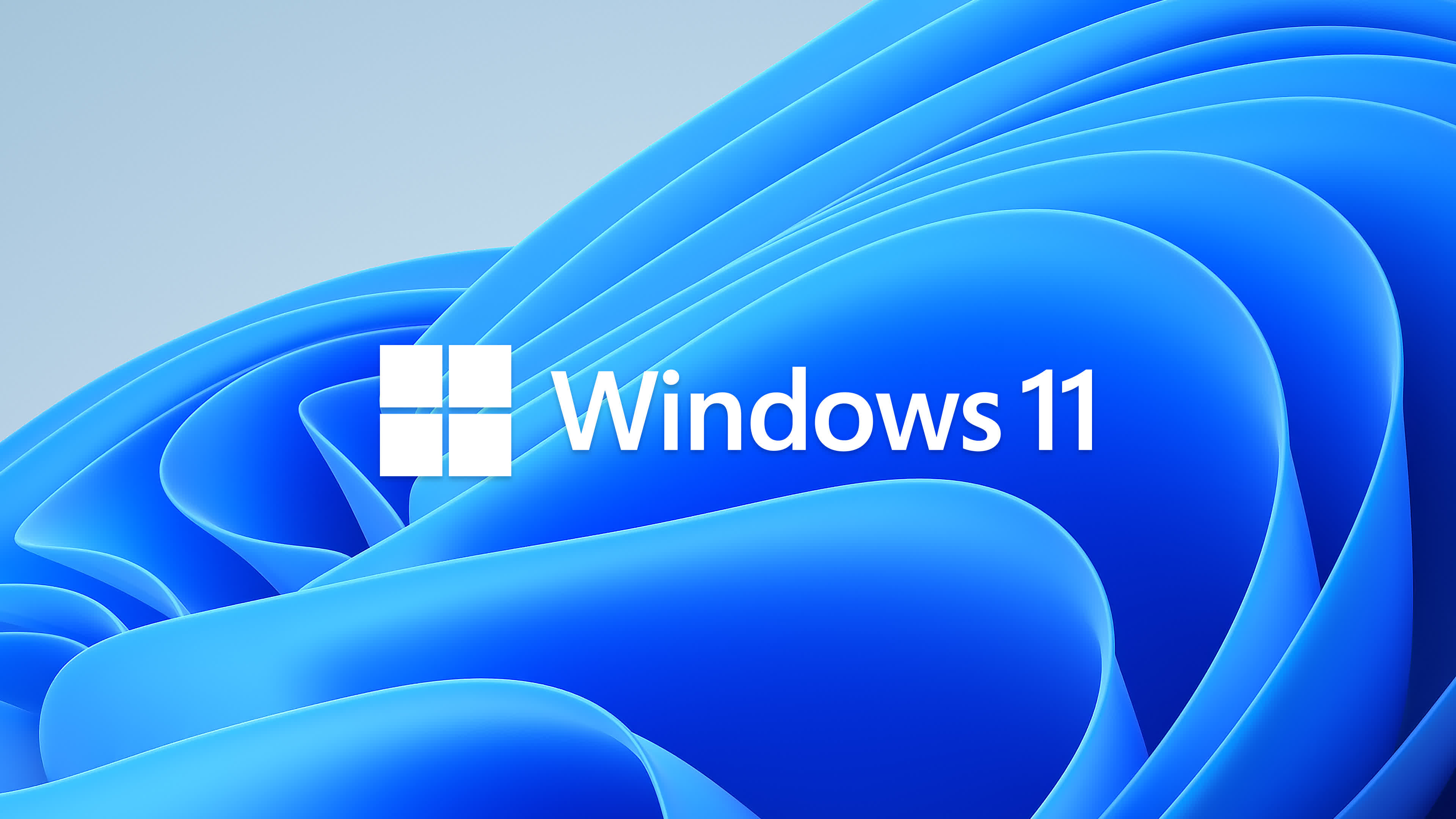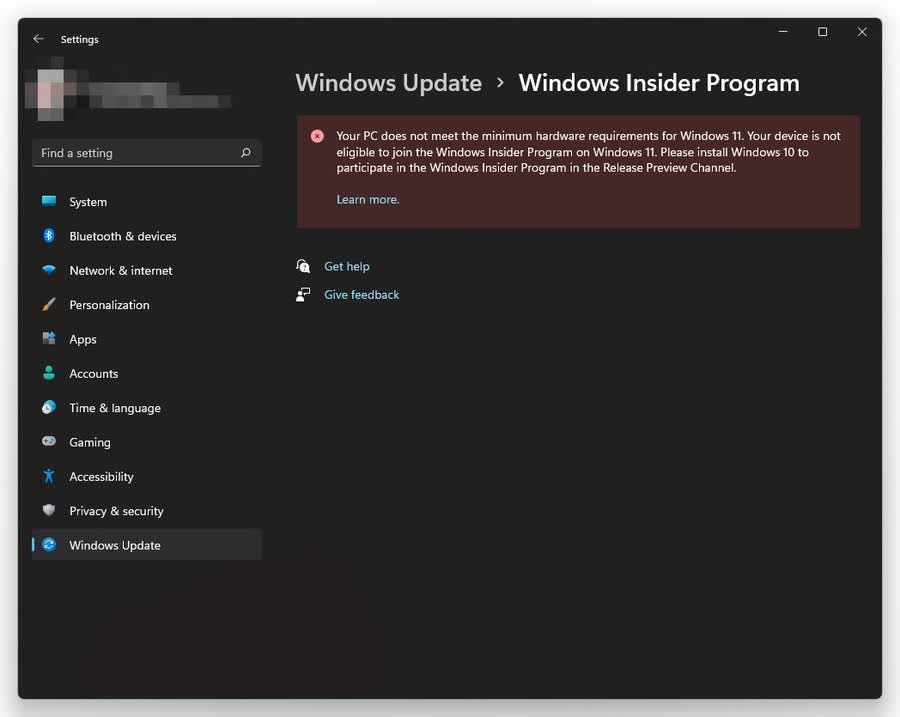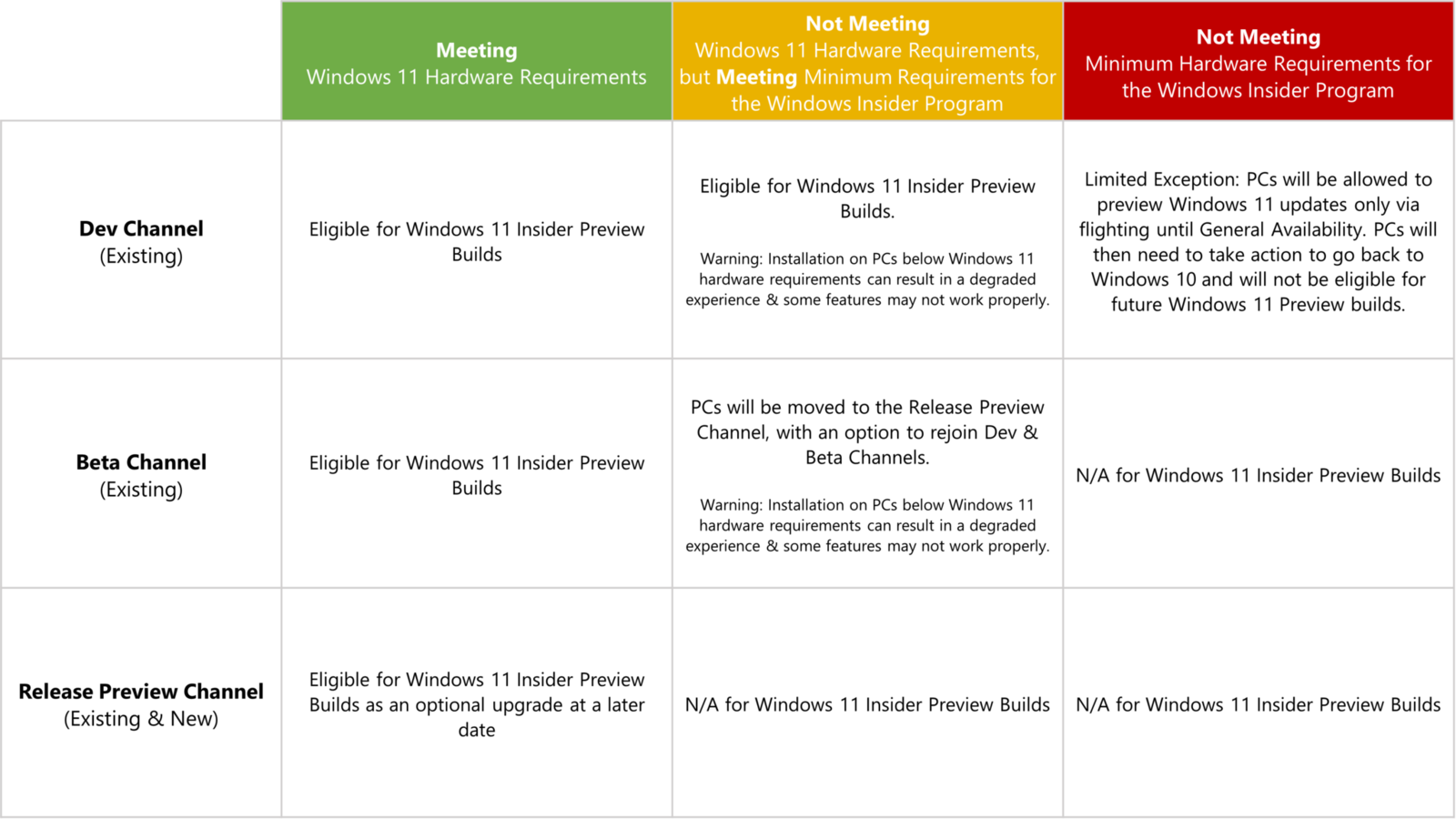A hot potato: While Windows 11 hasn't officially started rolling out yet, Microsoft has made it clear that plenty of PCs aren't going to meet the OS' minimum requirements. Now, members of the Windows Insider Program with incompatible hardware are being asked to uninstall Windows 11 and reinstall its predecessor.
Twitter account @BetaWiki published an image of a message seen by testers in both the Dev and Beta channels running Windows 11 on hardware that doesn't meet Microsoft's requirements for the new OS.
"Your PC does not meet the minimum hardware requirements for Windows 11. Your device is not eligible to join the Windows Insider Program on Windows 11. Please install Windows 10 to participate in the Windows Insider Program in the Release Preview Channel," it reads.
Microsoft's Brandon LeBlanc tweeted that people were warned in a Windows Insider blog post from June that this would happen.
We communicated this would be the case back via this blog post on June 24th here: https://t.co/rTIRMSHJHD https://t.co/7cvXHQ65nF
--- Brandon LeBlanc (@brandonleblanc) September 1, 2021
The Insider Program had been one way of getting Windows 11 early builds onto PCs with unsupported hardware, though Microsoft said that users would stop receiving preview builds once Windows 11 is generally available. Linus Tech Tips looked at this method, among others, and possible workarounds in a video last month.
It seems those who ignore Microsoft's message will stop receiving further updates for the OS---the same fate facing users with non-eligible PCs who upgraded via the Windows Media Creation Tool or with the official Windows 11 ISO.
Microsoft recently updated its Windows 11 minimum hardware requirements to include 7th-gen Intel Core X-series and Xeon W-series processors, along with the Intel Core 7820HQ (only select devices that shipped with modern drivers based on Declarative, Componentized, Hardware Support Apps (DCH) design principles, including Surface Studio 2). No first-gen AMD Zen processors are included on the list.
Microsoft will soon roll out its updated Health Check app for users to check if their PC meets Windows 11 requirements.
There's been plenty of confusion surrounding Windows 11 ahead of its October 5 rollout date. "For those who are using a PC that won't upgrade, and who aren't ready to transition to a new device, Windows 10 is the right choice," Microsoft said, noting that Windows 10 will continue to be supported up until October 14, 2025. That's unlikely to appease angry consumers, though.
A recent report found that over half of Windows 10 users want to upgrade, while over a quarter of those polled have laptops or PCs that don't meet the minimum requirements.


